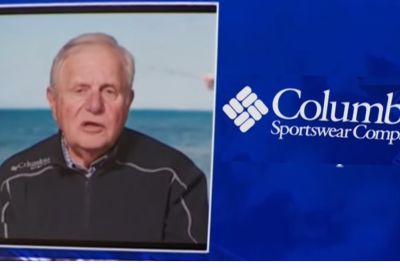McDonald's Declares War on Tipping Culture as It Quits US Restaurant Association: 'Pay Your Staff Properly!'
McDonald's exits major restaurant lobby amid tipping backlash and calls to raise worker pay.

McDonald's has dramatically quit America's most influential restaurant lobbying group in a high-stakes battle over tipping culture that could reshape how millions of workers are paid.
The fast-food giant confirmed its departure from the National Restaurant Association on Thursday following CEO Chris Kempczinski's blistering attack on tipped wages, which he said create an 'uneven playing field' that lets sit-down restaurants get customers to pay for their labour.
The split marks the most significant industry rift in decades, pitting the world's largest restaurant chain against a lobbying powerhouse that has fought to preserve America's controversial two-tier wage system.
Row Over Future of Tipping
McDonald's exit follows months of growing debate over the future of tipping in the US hospitality sector.
The company said its decision was driven by 'a responsibility to lead' in how workers are compensated. The fast-food giant has argued that tips create uncertainty and place the financial burden of fair pay on customers rather than employers.
In a statement, McDonald's said: 'We believe tipping culture has been used as a substitute for proper wages for far too long. It's time to pay staff properly and give them stability.'
The move represents one of the most significant public breaks between a leading global brand and the National Restaurant Association, which has historically lobbied against increases in minimum wage requirements.
Why McDonald's Took a Stand
The tipping debate has intensified in recent years as more US states consider phasing out the 'tipped minimum wage, ' a policy that allows restaurants to pay workers below the standard minimum wage if tips make up the difference. Critics argue that the practice leaves staff vulnerable to inconsistent earnings and customer bias.
McDonald's, which operates more than 13,500 outlets across the US, has attempted to distinguish itself by supporting minimum wage increases and reducing reliance on tipping models. Company executives said their size and influence meant they could no longer ignore the issue.
Labour Advocates Welcome Historic Split
Labour advocates have welcomed the announcement. Saru Jayaraman, president of One Fair Wage, told reporters the decision was 'historic' and could set a precedent for other chains. 'When McDonald's takes a stand, the industry pays attention,' she said.
President Saru Jayaraman said the move exposes how the sub-minimum wage is 'indefensible'.
'It is unfair to workers, a legacy of slavery that was created to allow restaurants to hire women of colour for free,' Jayaraman stated. 'But it is also unfair to employers—not just businesses like McDonald's, but thousands of small businesses across the country that do not ask customers for tips.'
What It Means for the Industry
The split highlights growing divisions within America's $900 billion restaurant industry. Eight states currently require equal wages for tipped and non-tipped workers, where Kempczinski noted 'poverty levels decrease, turnover levels go down, and it doesn't lead to any job loss'.
For America's 2.3 million tipped restaurant workers, McDonald's stance could accelerate change. In states that maintain a $2.13 tipped minimum, poverty rates for waitstaff hover around 18.5%, according to the Economic Policy Institute. In equal-wage states, that figure drops to 11.1%.
McDonald's confirmed it's 'open to conversations on raising the federal minimum wage' and has been in dialogue with the White House about wage policy. The company raised its own minimum wages in 2021, with entry-level workers earning between $11 and $17 per hour.
The National Restaurant Association said in response that it was 'disappointed' with McDonald's departure but insisted it would continue advocating for policies that support 'business sustainability and consumer choice.'
For many Americans, tipping has long been viewed as an ingrained cultural practice. But surveys suggest customer fatigue is rising, with diners complaining about pressure to tip even in fast-food settings. Economists warn that as tipping expands into new service categories, resentment is growing.
Trump's Tax Policy Highlights Industry Divide
The timing of McDonald's exit coincides with President Donald Trump's new no-tax-on-tips policy, which allows workers to deduct up to $25,000 in federal income tax from reported tips until 2028.
Whilst Kempczinski expressed support for helping restaurant workers, he pointed out the policy's inequity: 'The issue with no tax on tips is it only benefits those restaurants that have tips. We don't do tipping at McDonald's, and so we don't get the benefit of that tax relief.'
The National Restaurant Association had said that Trump's tax measures are beneficial for workers. But critics argue it reinforces a system where businesses paying sub-minimum wages gain an additional competitive advantage over those paying standard rates.
What Happens Next
McDonald's has not disclosed whether its restaurants will introduce a blanket ban on tipping. Still, insiders say the company is focused on ensuring base pay meets or exceeds minimum wage requirements in every state.
The decision also raises questions about how other major chains, including Starbucks, Applebee's, and Olive Garden, will respond. Some industry experts believe the move could accelerate legislative changes already under discussion in several states.
For McDonald's, the risk is balancing higher wage bills against customer expectations of low prices. However, executives insist that fair pay is essential for recruitment and retention in a competitive labour market.
As the debate spreads, McDonald's decision may prove to be a turning point. For the millions of US restaurant workers who depend on gratuities, it raises a fundamental question: will others follow suit, or will tipping remain embedded in American dining culture?
© Copyright IBTimes 2025. All rights reserved.





















